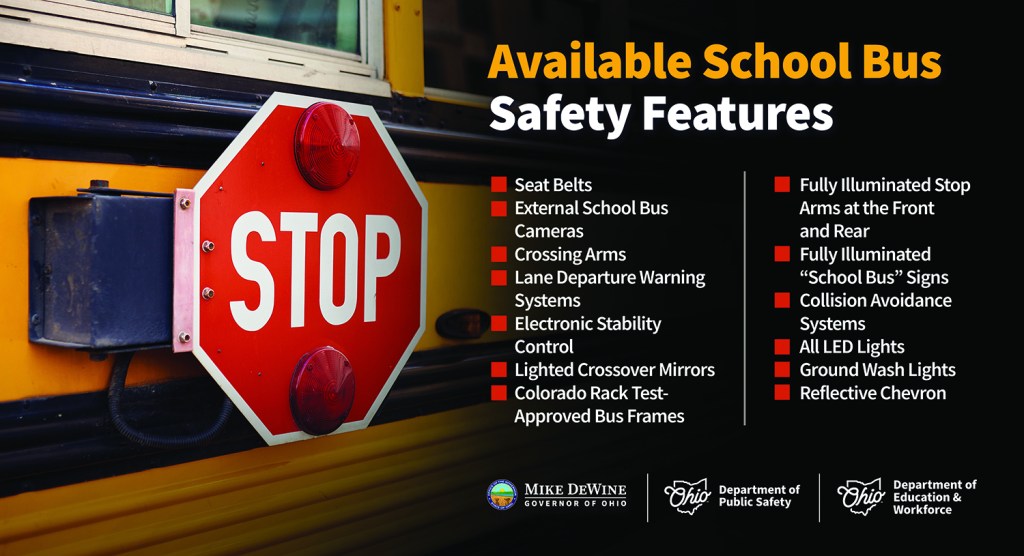Deadly school bus crash in Ohio yields new safety features and training — but no seat belt mandate
Published 12:00 am Monday, February 5, 2024
COLUMBUS (AP) — After a deadly school bus crash last summer, a task force convened by Republican Ohio Gov. Mike DeWine recommended Wednesday more training, driver benefits and safety features — but not a seat belt mandate.
How and when safety upgrades are made would be up to individual school districts, DeWine said at an event releasing the Ohio School Bus Safety Working Group’s final report. He said his office has begun discussions with the Legislature about establishing a grant fund to help school districts pay for vehicle upgrades or new safety-enhanced buses.
DeWine created the working group in August, after a school bus crash in Clark County’s Lawrenceville, about 55 miles (88.51 kilometers) southwest of Columbus, left one child dead and 23 others injured.
“We know that buses are the safest way to transport children to school; that remains true,” he said Wednesday. “But when we have a tragedy like this, I think it’s important for us to reexamine what we can do to make the trips that our kids are taking, and grandkids are taking, as safe as we can.”
The working group issued 17 recommendations. Sixteen related to bus driver recruitment and retention, training and education, school bus safety features, road and traffic safety, and emergency response.
Ohio Public Safety Director Andy Wilson said the group stopped short of recommending that the state mandate that all school buses have seat belts, instead leaving the decision to individual school districts.
“As a group — after hearing form the experts, hearing from our bus drivers, looking at the data or the lack of data from states that have mandated seat belts, and listening to the school districts who have tried pilot programs on their buses — we became convinced that the statewide mandate of seat belts on buses is not the most effective use of government resources to keep our kids safe,” he said.
Ohio Department of Education and Workforce Director Stephen Dackin said adding seat belts to a bus costs about $19,000. By contrast, the other twelve safety features the group recommended — including collision avoidance systems, electronic stability control, lighted crossover mirrors and fully illuminated stop arms at the front and rear — would cost about $13,000 per bus.
The final recommendation, involving commercial bus services, addressed a second Ohio bus crash that took place even as the task force was working. In that November accident, a charter bus of high school students was rear-ended by a semi truck on an Ohio highway, killing six and injuring 18.
To address private buses, the working group recommended that school districts adopt policies requiring “thorough evaluation of contracted commercial bus services.”
For public school bus drivers, the group recommended that the Ohio Department of Education and Workforce develop a uniform training curriculum, as well as a regional advanced training program, and that Ohio require six hours of training for drivers each year. The grant program DeWine has in mind would allow the state to offer the training to school districts at no cost, he said.
Other recommendations include improved access to professional development, wellness support and regular performance reviews for bus drivers, expanded engagement with parents and the public, school zone and bus route safety audits, and enhanced penalties for drivers of other vehicles who violate traffic laws in school zones or around school buses.
According to state data, between 2018 and 2023, the other driver was at fault in 68% of school bus crashes involving minor injuries, in 80% of crashes involving serious injuries; and in 75% of crashes involving fatalities.
DeWine said about 13,000 school buses are operating in Ohio at this time, but school districts typically don’t replace them all at once, but perhaps at a pace of one or two a year. New buses run about $120,000, Dackin said.






